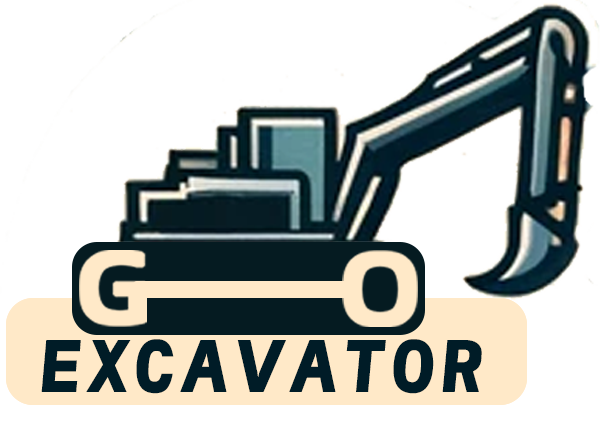
When it comes to choosing the right excavator for your construction or excavation project, understanding the differences between crawler excavators and wheeled excavators is crucial. Both types have their unique advantages and disadvantages that can significantly impact the efficiency and cost-effectiveness of your work. This guide will delve into the pros and cons of each to help you make an informed decision.
1. Crawler Excavators
What are Crawler Excavators?
Crawler excavators, also known as track excavators, are heavy machinery equipped with tracks instead of wheels. They are commonly used in various construction and mining operations due to their versatility and stability.
Advantages of Crawler Excavators
1.1. Stability and Balance
- Enhanced Stability: The tracks provide a larger surface area, distributing the machine’s weight more evenly and offering better stability, especially on uneven terrain.
- Low Ground Pressure: Tracks exert less pressure on the ground compared to wheels, making them ideal for soft or muddy surfaces.
1.2. Versatility
- All-Terrain Capability: Crawler excavators can easily navigate rough, steep, or slippery terrains where wheeled excavators might struggle.
- Heavy Lifting: These machines are better suited for heavy lifting tasks due to their stable base.
1.3. Durability
- Robust Construction: Tracks are less prone to punctures or damage compared to wheels, making them more durable in harsh working environments.
Disadvantages of Crawler Excavators
1.4. Speed
- Slower Movement: Crawler excavators move slower than wheeled excavators, which can be a drawback when traveling between job sites.
1.5. Maintenance and Wear
- Track Wear: Tracks can wear out more quickly and require regular maintenance and replacement, which can be costly.
- Higher Maintenance Costs: The undercarriage of a crawler excavator is more complex and requires more frequent maintenance.
1.6. Transportation
- Difficult to Transport: Due to their size and weight, crawler excavators can be challenging and expensive to transport between job sites.

2. Wheeled Excavators
What are Wheeled Excavators?
Wheeled excavators are similar to crawler excavators but are equipped with wheels instead of tracks. They are commonly used in urban environments and on paved surfaces.
Advantages of Wheeled Excavators
2.1. Mobility
- Higher Speed: Wheeled excavators can travel faster on roads and between job sites, reducing downtime and increasing productivity.
- Ease of Transportation: They are easier to transport due to their ability to drive on public roads.
2.2. Versatility in Urban Areas
- Urban Efficiency: Wheeled excavators are ideal for urban construction projects where maneuverability and speed are essential.
- Reduced Surface Damage: Wheels cause less damage to paved surfaces, making them suitable for work in cities and residential areas.
2.3. Lower Maintenance Costs
- Less Track Wear: Without tracks, maintenance costs related to track wear and undercarriage upkeep are significantly reduced.
- Simpler Maintenance: Wheels and axles are generally easier and cheaper to maintain than tracks.
Disadvantages of Wheeled Excavators
2.4. Stability and Traction
- Less Stability: Wheeled excavators are less stable on uneven or soft terrain, which can limit their use in certain environments.
- Traction Issues: Wheels provide less traction on slippery or loose surfaces compared to tracks.
2.5. Load Capacity
- Lower Lifting Capacity: Wheeled excavators typically have a lower lifting capacity due to their less stable base.
- Limited Heavy-Duty Applications: They are not as well-suited for heavy-duty excavation tasks as crawler excavators.
2.6. Terrain Limitations
- Terrain Restrictions: Wheeled excavators are better suited for flat, firm surfaces and may struggle on rough, uneven ground.
Choosing between a crawler excavator and a wheeled excavator depends on your specific project needs. If your work involves rough, uneven terrain or requires heavy lifting, a crawler excavator may be the best choice. However, if you need to navigate urban environments quickly and efficiently, a wheeled excavator could be more suitable.
FAQs
1. Which type of excavator is better for soft ground?
Crawler excavators are better for soft ground due to their tracks, which distribute the machine’s weight more evenly and exert less ground pressure.
2. Are wheeled excavators suitable for rural areas?
Wheeled excavators can be used in rural areas, but they are generally more suited to urban environments with paved surfaces. They may struggle on uneven or soft terrain common in rural settings.
3. How do maintenance costs compare between crawler and wheeled excavators?
Maintenance costs for crawler excavators are generally higher due to the wear and tear on tracks and the more complex undercarriage. Wheeled excavators tend to have lower maintenance costs.
4. Can wheeled excavators be used for heavy lifting?
While wheeled excavators can perform many tasks, they typically have a lower lifting capacity compared to crawler excavators and are not as well-suited for heavy lifting tasks.
5. How do I choose the right excavator for my project?
Consider the terrain, the type of work, and the need for mobility. Crawler excavators are better for rough, uneven terrain and heavy lifting, while wheeled excavators are ideal for urban environments and projects requiring quick movement between sites.
A Comprehensive Guide to Buying a Excavator Second Hand
Purchasing a second-hand excavator can be a cost-effective solution for your construction or landscaping needs. However, buying used machinery comes with its own set of challenges and considerations. This comprehensive guide will walk you through [...]
Comprehensive Guide to Hyundai Mini Excavators: Features and Prices
Mini excavators have become indispensable tools in the construction and landscaping industries. Hyundai Construction Equipment, a global leader in heavy machinery, offers a range of mini excavators known for their reliability, efficiency, and advanced features. [...]
How to Extend the Service Life of Excavator Parts
Excavators are indispensable machines in the construction and mining industries. They perform heavy-duty tasks that demand robust components and meticulous maintenance. Extending the service life of excavator parts not only reduces operational costs but enhances [...]
Kymron Excavators: Innovative, Sustainable Construction Machinery
In the dynamic world of construction and heavy machinery, Kymron has emerged as a game-changer. Specializing in advanced excavator technology, Kymron is redefining industry standards with its commitment to innovation, efficiency, and sustainability. Company Overview [...]
Bulldozer vs. Wheeled Excavator: Which Machine is Better for Moving Soil?
Moving soil is a fundamental task in construction, landscaping, and earthmoving projects. Choosing the right machinery for the job can significantly impact efficiency, cost, and project timelines. Two of the most commonly used machines for [...]
Why Are Small Excavators Favored? A Comprehensive Guide
In the world of construction and landscaping, efficiency and versatility are key. Among the myriad of machinery available, small excavators have risen in popularity. But what makes them so favored? Introduction to Small Excavators Small [...]




